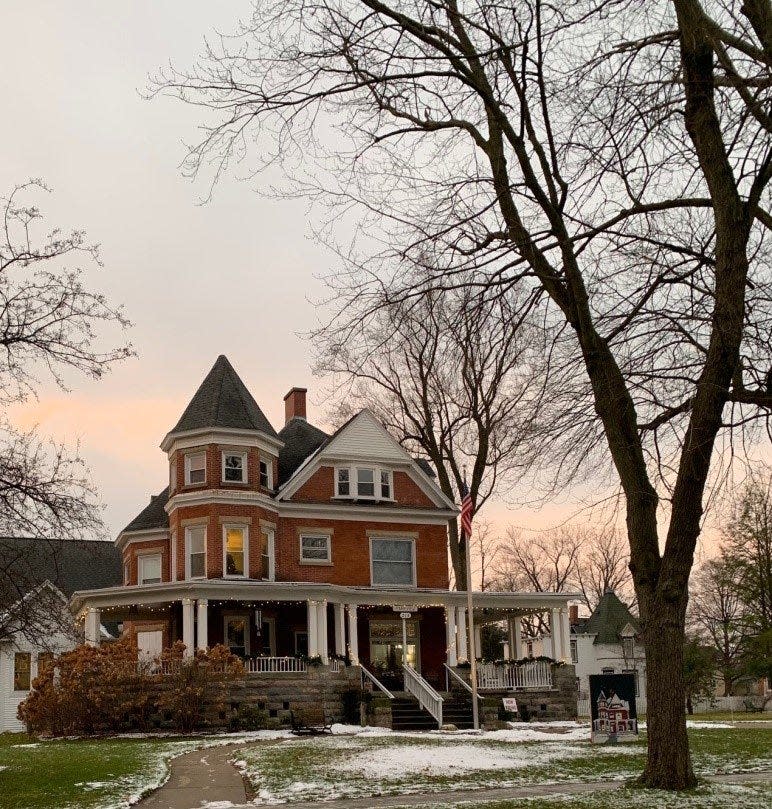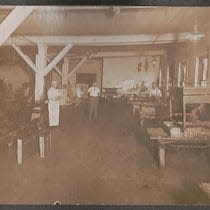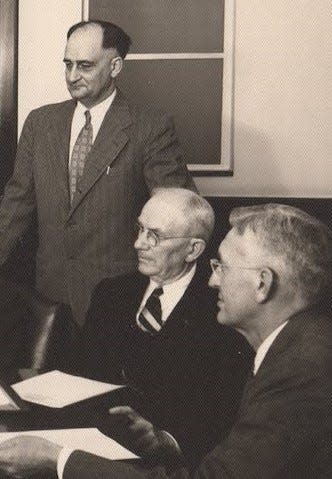Steve VanderVeen: The long and winding history of Herman Miller Furniture

DJ DePree was one of a kind. He forged a unique company out of traditional small town Christian values and big city modern design.
DJ’s father-in-law is partly responsible. Born Herman Mulder in the Netherlands in 1868, his parents, Harm and Stientje Smit Mulder, moved the family to the United States in 1882 and made their home in Grand Rapids. In 1889, Herman became a U.S. citizen and changed his last name to Miller.
That year, he also married Nellie Breen. Together, they had six children, among them Nellie, born in 1893, and Howard, born in 1905. In Grand Rapids, Herman Miller took a job with the Royal Manufacturing Company and, by 1891, had worked his way up to foreman; later he was promoted to superintendent.
Meanwhile, in Zeeland, in 1899, John Spyker started a small factory making grandfather clocks on the south side of what's now Lincoln Avenue. Needing capital, Spyker sought a loan from Christian Den Herder, president of Zeeland State Bank, but he wasn't successful.

In 1905, Herman Miller bought a stake in a furniture business — Jacob Elenbaas’ Michigan Star Furniture at 51 W. Washington Ave. Elenbaas made “Princess Dressers” and sold them to Sears Roebuck and Company. In 1909, he hired a young, reflective man out of high school as his office assistant. That man’s name was DJ DePree.
Also in 1909, Christian Den Herder, Albert LaHuis, Dr. Thomas Huizenga, Henry De Kruif, and John Veneklasen invested $10,000 in Spyker’s company, incorporating it as the Colonial Manufacturing Company. Unfortunately, Spyker wasn't as good a business manager as a woodworker, so with another $10,000, the investors bought out his half of the business, built a factory at 103 N. Colonial at Washington Street, and hired Herman Miller as manager and John Kemp as designer.
Given the increase in working capital and newly acquired management expertise, they built upon Spyker’s foundation; within two years, the plant’s capacity doubled and Colonial was shipping clocks around the world. Given Herman Miller’s new place of employment, he and his family moved to Zeeland and moved into Hendrik DeKruif’s grand house at 214 E. Central Avenue (present-day Parkview Home).
In 1914, DJ DePree married Nellie Miller. In 1915, their first child, Hugh, was born.

By 1923, Elenbaas had made DJ DePree manager of Michigan Star. When Elenbaas decided to leave the business to prospect for oil, DJ decided to invite his father, Jan Dirk DePree; father-in-law, Herman Miller; and banker, Christian Den Herder, to buy Elenbaas’ share of Michigan Star. Even though he didn’t consider his son-in-law to be a “money-maker,” Herman Miller backed DJ and made the investment.
In 1924, Herman and Nellie DePree welcomed their son, Max, into the world.
Subscribe: Get all your breaking news and unlimited access to our local coverage
In 1926, Herman Miller made another investment. He purchased the closed Wolverine Furniture on the northeast corner of State and Washington. There, he installed DJ as manager, even though DJ was also managing Michigan Star.
Leveraging his father-in-law’s reputation, DJ named the latter the Herman Miller Furniture Company. At Wolverine, they launched the Herman Miller Clock Company. Ironically, Herman Miller worked at neither location, but remained at Colonial Clock.

Herman Miller’s belief that DJ wasn't a money-maker might have become true, if not for DJ’s important discoveries. The first occurred in 1927 when, unexpectedly, his millwright, Herman Rummelt, passed away. In those days, the millwright was a key employee. He kept the factory running by operating the steam engine that, through a system of belts and pulleys, powered the other machines in the shop.
So, when he died, the factory stopped. When DJ went to the Rummelt home to visit with his widow, she shared with DJ handcrafts, poetry, and stories of how Rummelt helped others. In DJ’s words, “Later, after the funeral … I felt that God was dealing with me about this matter of my attitude toward the workers in the plant, and I began to realize that we were all alike. ... By the time I got home I had decided that we were all extraordinary.”
Thinking of workers and managers as equal was a radical realization, as we learned from Jan Vogelzang’s story. The idea that God created all people in his image with complementary and equally important gifts to contribute to the whole not only saved DJ’s business from bankruptcy, it turned it into a design leader.
We'll tell more of DJ’s story next time.
— Community Columnist Steve VanderVeen is a resident of Holland. Contact him through start-upacademeinc.com.
This article originally appeared on The Holland Sentinel: Holland History: The long and winding history of Herman Miller Furniture

